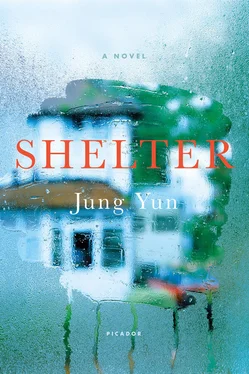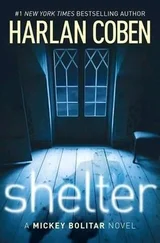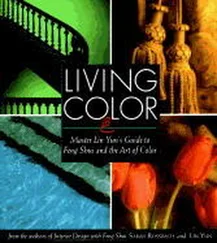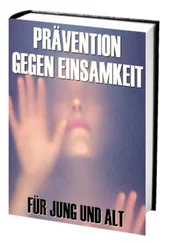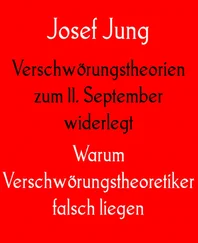He’s standing on the front steps waiting for her, but she continues to click away with her camera, assuming what hasn’t been agreed to yet — that the listing is hers to sell. Kyung is content to wait and stare at the sky, which is cloudless and blue, still like water. He doesn’t remember when the seasons changed and spring finally turned into summer.
“Sorry about the workout clothes,” she says sheepishly. “I’d just finished with my trainer when you called.”
“Thank you for coming so quickly,” he says, bracing himself for her furious handshake as she joins him on the steps.
He didn’t expect her to be available the same day he called, but he could sense something change in her voice as he gave her the details. A property in the Heights seemed to interest her. The address did too. Is it one of those houses at the very top of the hill? she asked. And as soon as he confirmed it: yes, of course, she said. How soon could he meet her there?
Gertie snaps a photo of the garage and two more of the lawn. “Nice landscaping,” she says. “But I can see why your parents want to sell, given their situation.”
He glances at her, confused by her cheerful tone.
“It’s a lot of upkeep,” she continues. “Way too much for an older couple.”
Gertie doesn’t seem to understand what happened here, but Kyung isn’t sure if he’s obligated to tell her, if a crime is something he has to disclose, like a leaky roof or a bad furnace. He holds the front door open and follows her into the entryway, which has been cleared of its rubble, leaving only a tall bronze coatrack and a matching umbrella stand.
Gertie runs her hand along the polished wood banister. “Stunning,” she says. “The details are in pristine condition.”
Her enthusiasm for his parents’ house is so different from her reaction to his own, which in retrospect was largely disinterested and diagnostic. Having never seen this house before, Gertie doesn’t understand all of the things that are wrong with it. And she misses the clues — the stains on the drapes that the dry cleaner couldn’t remove, the faint discolorations on the walls where so many paintings used to hang, but no longer do.
“Did your parents restore everything themselves, or was the work already done when they got here?”
The house had been built in the 1800s. The previous owners bought it as a wreck and spent nearly ten years on renovations, only to run out of money as the end was in sight. Jin quickly stepped in and bought the house, the furniture, and anything else the couple was willing to sell — even their massive boat, which had only touched water twice since changing hands. He was pleased with himself for finding such a bargain, which never sat right with Kyung. He often wondered what had happened to the couple and where they ended up.
“All the big projects were done before my parents bought it,” he says. “Mostly, my mother just focused on the decorating.”
They move into the living room, where Gertie examines a lamp with a base made of dark blue crystal. It was once part of a set, but its broken twin had to be swept out with the trash, lampshade and all.
“She has an amazing eye for period pieces. Nothing in this room seems out of place.”
Kyung feels like a goldfish in a pot, slowly being boiled to death as the water temperature rises. His palms are sweaty; the collar of his shirt is too tight. Gertie keeps walking past the vague outlines on the walls where things used to hang. She notices only the ornate built-in bookshelves, not the gaps left behind by the books that were destroyed. She admires the high-back sofas upholstered in pale beige silk, but has no idea about the stains and tears on the undersides of their cushions.
“Forced-air heat?” she asks, studying the antlerlike shadow of a chandelier.
He’d forgotten about the list in his pocket that his father wrote out for him. He unfolds the sheet of paper and scans Jin’s shaky penmanship. “Yes. Forced air,” he says, and because the information is right there in front of him, he adds: “Three zones. And central air too.”
“My goodness.”
Gertie has wandered into the dining room, where she’s opened the built-in china cabinet in the corner. He doesn’t know whether her remark was about the heating system, or the number of place settings behind the door — enough to feed twenty-four. Each plate and bowl, saucer and cup is rimmed in gold. Real gold, Kyung recalls Mae once saying. Not the cheap plated kind.
“So if your parents are selling, I assume you’re not planning to rent out your house anymore?”
“No, they’ll be staying with us for a while until they find something else.”
She looks at him over her shoulder, radiating her best attempt at warmth. “I hope you’ll pass on my name if they need a realtor.”
Kyung isn’t sure if he’s impressed by her frankness, or repulsed by it. “Do you sell a lot of houses in this price range?”
“What was that?” Gertie leans toward him.
It’s an odd reaction, he thinks. They’re standing less than three feet away from each other. He didn’t whisper the question; she could hear him just fine.
“How many houses have you sold in this price range?”
Gertie smiles and shakes her finger, pretending to admonish him. “I haven’t even told you how I’d price this house yet,” she says in a grating singsong.
“I know, but—”
“I’ve been the top seller in the area for the past eight years, and I’ve already cleared three million in sales since January.”
“Yes, but that’s not really what I’m asking.” He doesn’t understand why she’s avoiding his question, but it’s obvious that she is. “If we can agree that this place is worth at least a million—”
Gertie looks down at her hands as if she’s counting on them. “Two.”
“Two what? This house is worth two?”
“No, I’ve sold two houses in this price range,” she says briskly. “But you have to understand, property in the upper Heights rarely comes up for sale, especially in this economy. You won’t find anyone in the area who sells more than I do.”
Something in her voice crosses the line between eager and desperate, a lapse she seems to regret. She’s flustered all of a sudden, fiddling with the settings on the camera hanging from her neck. Until now, Kyung didn’t understand what Gertie, with her barrage of colorful billboards and bus ads, probably knew the second she pulled into the driveway — this house is out of her league. She’s like the Costco of realtors. She makes her money by selling in volume.
“I’m still not sure my parents are actually going to sell. I feel like this is something they could change their minds about at any time.”
She lowers her camera, drawing her lips into a thin smile. “Of course. It’s a very big decision. But we might as well finish looking around since I’m here. Can I see the upstairs now?”
Kyung leads her through the kitchen and up the old servants’ staircase, ducking to avoid the low, angled ceiling as they wind their way to the second floor. He opens the doors for Gertie in the order they pass them — study, guest room, guest room, bathroom — unintentionally saving the master bedroom for the end of their tour. Mae cleaned this room herself, rejecting his repeated offers to help. Although he didn’t understand her insistence, he was almost grateful for it. He’d never seen where his parents slept before the attack, and he had no desire to see it afterward. He pushes the door open and stands by to let Gertie pass. The bedroom is large and square, sparsely decorated compared to the rest of the house. The air is musty, but light streams in through the lace-covered windows, brightening the pale green walls, which makes the room seem less forbidding than he imagined it. He steps inside, relieved to find everything neat and clean, absent of any reminders of what happened here.
Читать дальше
